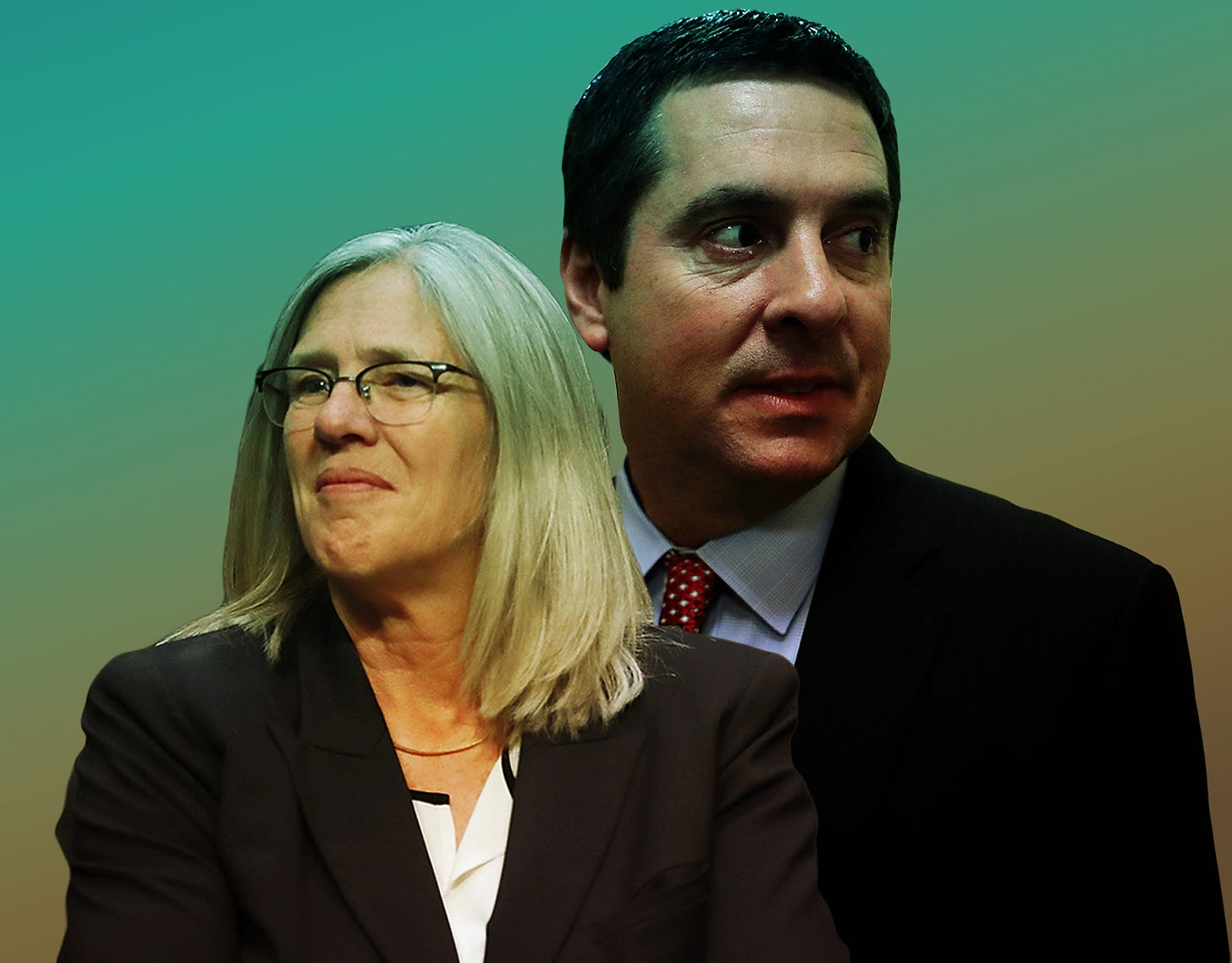Sue Gordon Should Have Made Trump Fire Her
Director of National Intelligence Dan Coats will leave his job on August 15. In a normal world, he would be replaced at least temporarily by Sue Gordon, the principal deputy director of national intelligence. That’s what the law requires.
But last week Gordon announced her own resignation, attaching a note to her official letter telling Donald Trump, “I offer this letter as an act of respect & patriotism, not preference. You should have your team.” This is too bad: Gordon could have made her termination much harder for the administration, and the country would have been better off if she had.
There are some government positions in which, frankly, political appointees can do little damage. It doesn’t really matter who the postmaster general is. Hardly anyone gives a thought to the surgeon general. A pro wrestling executive served as administrator of the Small Business Administration for more than two years, and almost no one noticed.
The director of national intelligence is not one of those positions. The office was created in the aftermath of 9/11, when the country learned that having 17 intelligence agencies isn’t worth much if they don’t coordinate. The DNI’s job is to coordinate the activities of those 17 agencies to make sure they’re collecting the right intelligence, and to serve as a central repository for their analysis so policymakers can hear from one voice about what’s going on in the world.
It’s a job for someone experienced, judicious, and ruthlessly honest. A politicized intelligence community would not only render our leadership blind and deaf, but it could degrade the country’s intelligence capabilities for years to come. Intelligence officers are carefully trained to overcome biases, both personal and institutional. Once that capability is lost among a cohort of operatives and analysts, it takes years to build it back again.
Sue Gordon is a 30-year veteran of intelligence work. She’d have no problem telling the truth to decision-makers and insulating intelligence from partisanship.
Though the Trump administration was trying its best to figure out a way around the law, Gordon would have taken over as acting DNI later this week.
Now that Gordon has politely stepped aside, the universe of people who could be nominated for DNI expands dramatically. Soon after Gordon’s resignation, Trump announced that Joseph Maguire, currently serving as the director of the National Counterterrorism Center, would be the acting DNI. But only acting.
The Federal Vacancies Reform Act of 1998 stipulates that officials can’t be acting in a position for which they’re also awaiting Senate confirmation. That means Maguire is likely to be a placeholder while Trump makes his real pick for DNI.
That person will more likely resemble Trump’s previous favorite, Representative John Ratcliffe, than Gordon or Maguire. Ratcliffe turned out not to be confirmable, but there is someone equally pliable and shameless, but with a greater likelihood of being confirmed; someone who’s gormless and pugnacious enough to sue Twitter over a parody account, but who’s also held positions of serious responsibility over the intelligence community.
The image of DNI Devin Nunes is ridiculous, but all the more so in comparison to Gordon. Her resignation eliminates the possibility of a side-by-side comparison of their experience and qualifications.
This is the same Devin Nunes who, as chairman of the House Permanent Select Committee on Intelligence, took a classified briefing at the White House on the incidental surveillance of Trump campaign staff, held a press conference to announce it, went back to the White House to tell the president (?), and then held a second press conference, all before telling other Intelligence Committee members. The same one who rejected calls for a special committee to investigate Russian election interference, saying “at this point, there’s nothing there” before an investigation. The very man who, at the White House’s behest, called journalists to deny any contact -- “even pizza-delivery-guy contact” -- between the Trump team and the Russians. (The Mueller report identified more than 100 contacts between Trump campaign personnel and agents of the Russian government.)
As law professor Steve Vladek pointed out, “[the] Trump administration decided that… Gordon would’ve had to become the Acting DNI on August 15… and they couldn’t abide that result.” Hence the resignation.
She could have refused. That would have left Trump with two options: If he’d fired her, he might not have had the legal power to appoint an acting replacement. That power applies only when an executive officer “dies, resigns, or is otherwise unable to perform the functions and duties of the office.” It’s unclear if “unable” includes firings. If he hadn’t fired her, she could have served as DNI for a while, maybe saving her resignation for a moment when it would have had more of a rhetorical and political affect, à la James Mattis.
But she did resign, and Nunes is measuring drapes for his new office.




